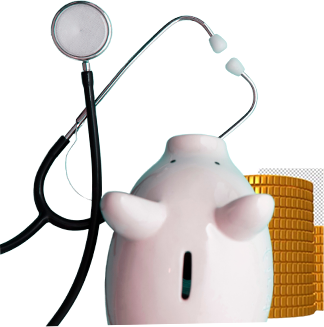PERSONALIZED DIET PLAN FORM
DIETICIAN FOR HIGH CHOLESTEROL

Contact Us
Millions of people are looking for different ways to improve their diets and lower their high cholesterol in the modern world. However, it could be challenging to find out the best diet for you. The advice from dieticians and nutritionists can help you find a diet that will reduce your high cholesterol and enhance your overall health if you are having trouble controlling your cholesterol levels. They can give you the most up-to-date advice on how to effectively control high cholesterol. Our nutrition experts at QUA Nutrition will collaborate with you to create a personalized diet plan to manage your condition and offer continuous assistance and education.

Diet for High Cholesterol
A healthy diet is essential for controlling high cholesterol because the foods you eat have an impact on your blood cholesterol levels. Your body needs cholesterol to operate, and your liver can produce enough of it for your bodily functions. This means that you don’t need extra cholesterol from your diet. Though diet only affects 20% to 30% of the cholesterol in your blood, certain foods can cause LDL levels to rise above the normal range. However, you can bring down your LDL levels with the right foods. To effectively manage your cholesterol levels and reduce the risk of heart disease, it is crucial to know what you can and cannot consume. A cardiac nutritionist can provide you with a proper diet that will lead to a healthy heart.
Here are some dietary steps to manage high cholesterol:
Increase Soluble Fiber: In the digestive tract, soluble fiber binds with cholesterol to aid in its removal from the body. Foods like oats, beans, lentils, berries, apples, Brussels sprouts, and carrots are rich in soluble fiber.
Opt for Healthy Fats: Use unsaturated fats instead of saturated fats, which are present in red meat and full-fat dairy products. Omega-3 fatty acid-rich foods, such as walnuts, flaxseeds, and salmon, are great for heart health. Opt for olive oil instead of butter when cooking.
Limit Saturated and Trans Fats: Saturated fats, found in processed foods and fatty meats, can raise LDL cholesterol levels. To prevent reduced HDL and increased LDL cholesterol, trans fats must be eliminated. Trans fats are found in items like fried foods and some baked goods.
Eat Plant-Based Foods: Consuming additional fruits, vegetables, whole grains, and legumes can help lower cholesterol. These foods have fiber, which aids in reducing the absorption of blood cholesterol.
Control Portion Sizes and Eat Balanced Meals: Lean meats, whole grains, and an abundance of fruits and vegetables are all components of a well-balanced diet. Stay away from overeating because controlling weight is essential for controlling cholesterol levels.
How a Dietician Can Help with High Cholesterol
The role of a dietitian and nutritionist is crucial since controlling high cholesterol can be very difficult. A certified dietician can design a customized diet plan based on your unique food preferences, lifestyle, and health requirements. They can give you guidance on when to eat, how much to eat, and what kinds of foods to eat.
Here’s how a dietician can support you:
Tailored Meal Plans: Your dietician will develop a customized meal plan based on your cholesterol levels, family history, and general health. They will assist you in selecting items that will reduce LDL cholesterol while maintaining an enjoyable diet.
Nutritional Education: You’ll learn how to read food labels and identify foods that could seem healthy but include a lot of hidden carbohydrates or fats.
Long-term Support: A dietician helps you create long-term eating habits to improve your heart health. Regular check-ins guarantee that you’re on course and provide any necessary modifications.

Lifestyle Modifications to Lower Cholesterol
Apart from diet, multiple lifestyle adjustments can reduce cholesterol levels.
Regular Physical Activity: Exercise reduces LDL cholesterol while increasing HDL cholesterol. Aim for 75 minutes of strenuous activity or at least 150 minutes of moderate-intensity aerobic exercise each week. Walking at a fast pace can also have an impact.
Weight Management: Even a modest weight loss of 5–10% of body weight can have a significant impact on lowering LDL cholesterol.
Quit Smoking: Smoking increases the risk of heart disease by damaging blood vessels and lowering HDL cholesterol. Overall cardiovascular health and cholesterol levels can be improved by quitting smoking.
Limit Alcohol: While moderate alcohol consumption may raise HDL cholesterol, excessive drinking can increase triglycerides and contribute to high cholesterol.Stress Management: Long-term stress can lead to unhealthy coping strategies like smoking or overeating, which can raise cholesterol levels indirectly.
Foods That Can Raise Cholesterol
Certain foods can significantly raise cholesterol levels, so it’s best to consume them in moderation or avoid them altogether.
Saturated Fats: These are present in processed foods, full-fat dairy products, butter, and red meat. Make sure that saturated fats don’t account for more than 5–6% of your daily caloric intake.
Trans Fats: These are mainly present in fried foods and commercial baked goods such as cakes and cookies. Avoid trans fats completely, as they can increase LDL cholesterol levels.
Processed Meats: High levels of saturated fats and salt in bacon, sausage, and hot dogs can lead to elevated cholesterol.Sugary Foods: Consuming foods rich in refined sugars, such as sweetened drinks and desserts, can elevate triglyceride levels, a form of fat in the bloodstream that heightens the risk of heart disease.


Importance of Consulting a Dietician for High Cholesterol
essential because they have received specialized training to comprehend the intricate relationship between diet and cholesterol levels. They make sure their advice is grounded in science rather than generalization by keeping up with the most recent dietary guidelines and research.
A dietician can assess how your body reacts to particular foods and design a diet plan that fits your lifestyle and health profile. To make sure that your dietary changes are practical and efficient for your everyday schedule, this individualization is essential. They may assist you with monitoring your progress, making necessary adjustments to your food plan, and maintaining your motivation through frequent check-ins. This continuous assistance guarantees that you maintain your course and achieve small but significant progress.
Why is QUA Nutrition Clinic the Best Choice for High Cholesterol Management?
Qua Nutrition Clinic stands out by offering a comprehensive, personalized approach to high cholesterol management that is backed by science. Our dieticians take the time to learn about your lifestyle, eating preferences, and cholesterol profile before providing a one-size-fits-all solution. This leads to a personalized diet plan that attempts to raise HDL cholesterol and decrease LDL cholesterol to enhance heart health generally.
Qua Nutrition adopts a comprehensive approach to managing cholesterol. We stress the significance of lifestyle changes, including exercise, stress management, and quitting smoking, in addition to diet, as key to lowering cholesterol and improving heart health. Qua Nutrition helps clients manage high cholesterol and attain lasting health benefits by offering a well-rounded and personalized approach to diet for high cholesterol. To book your consultation with the top dieticians and nutritionists in India, contact us today.

FAQs
Can I lower my cholesterol through diet alone?
Yes, food is a major factor in controlling cholesterol levels, but some people may also need medicine, particularly if they are genetically predisposed to high cholesterol.
How much soluble fiber should I eat daily to lower cholesterol?
10 to 25 grams of soluble fiber should be consumed daily. Good sources include foods like fruits, legumes, and oats.
Is all fat bad for cholesterol?
No, not all fat is bad. Unsaturated fats, present in foods like almonds, avocados, and olive oil, can help lower LDL (bad) cholesterol and increase HDL (good) cholesterol.
How long does it take to see changes in cholesterol levels after changing my diet?
After making regular dietary and lifestyle adjustments, you can notice improvements in your cholesterol levels in as little as 6 to 8 weeks, but this can vary from person to person.
Can exercise help lower cholesterol? Regular
exercise can improve heart health by raising HDL cholesterol and lowering LDL cholesterol levels.


